You are using an outdated browser. This website is best viewed in IE 9 and above. You may continue using the site in this browser. However, the site may not display properly and some features may not be supported. For a better experience using this site, we recommend upgrading your version of Internet Explorer or using another browser to view this website.
- Download the latest Internet Explorer - No thanks (close this window)
- Together for Good
- Philadelphia Impact
- Global Initiatives
- Diversity & Inclusion
- Catalyst @ Penn GSE
- Penn GSE Leadership
- Penn GSE Environmental Justice Statement
- Program Finder
- Academic Divisions & Programs
- Professional Development & Continuing Education
- Teacher Programs & Certifications
- Undergraduates
- Dual and Joint Degrees
- Faculty Directory
- Research Centers, Projects & Initiatives
- Lectures & Colloquia
- Books & Publications
- Academic Journals
- Application Requirements & Deadlines
- Tuition & Financial Aid
- Campus Visits & Events
- International Students
- Options for Undergraduates
- Non-Degree Studies
- Contact Admissions / Request Information
- Life at Penn GSE
- Penn GSE Career Paths
- Living in Philadelphia
- DE&I Resources for Students
- Student Organizations
- Career & Professional Development
- News Archive
- Events Calendar
- The Educator's Playbook
- Find an Expert
- Race, Equity & Inclusion
- Counseling & Psychology
- Education Innovation & Entrepreneurship
- Education Policy & Analysis
- Higher Education
- Language, Literacy & Culture
- Teaching & Learning
- Support Penn GSE
- Contact Development & Alumni Relations
- Find a Program
- Request Info
- Make a Gift
- Current Students
- Staff & Faculty

Search form
Doctor of philosophy (ph.d.), you are here, a highly individualized doctoral program with nationally-recognized faculty researching the issues shaping higher education. .
Penn GSE's Higher Education Ph.D. program is pioneering research on the most pressing questions in higher education: college access and affordability; race, gender, and inclusion policies on campus; international education; and university governance. Our graduates are prepared to contribute to the field through positions in academia, government, or nonprofit institutions.
What Sets Us Apart
About the program.
The Ph.D. in Higher Education prepares students for an academic career in the field of higher education. Through coursework and a research assistantship with their advisor, students develop the skills they need to conduct quality primary research in higher education.
Fall: 3-4 courses; Spring: 3-4 courses
Transfer courses accepted Up to 8 with faculty approval
Culminating experience Dissertation
The Higher Education Ph.D. program is highly individualized, and students work closely with their academic advisor to draw from courses from the division and from other areas on campus that relate to their area of inquiry. Students develop the skills they need to conduct quality primary research in higher education, including understanding research design; program evaluation; and the analysis of both qualitative and quantitative data.
The Ph.D. program in Higher Education is highly individualized. At least 12 course units of graduate work must be taken at the University of Pennsylvania. The program requires students to complete two methods courses, and Ph.D. students develop a planned program of study in consultation with their academic advisor.
For more information on courses and requirements, visit the Higher Education Ph.D. program in the University Catalog .
Our Faculty
Higher Education faculty are leading the conversation about how to expand college access, equity, and affordability. These experts are routinely sought by university presidents, foundation leaders, journalists, and policymakers seeking to understand the changing landscape of higher education. Please contact our program for information on selecting a faculty advisor.
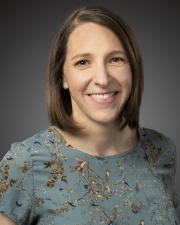
Affiliated Faculty
Ross Aikins Adjunct Associate Professor Ph.D., UCLA
Peter Eckel Senior Fellow Ph.D., University of Maryland
Peter Garland Executive Vice Chancellor, Pennsylvania State System of Higher Education Ph.D., Penn State University
Laura W. Perna Vice Provost for Faculty Ph.D., University of Michigan
Jason A. Presley Vice Dean, Finance and Administration, Penn GSE Ph.D., New York University
Sharon M. Ravitch Professor of Practice Ph.D., University of Pennsylvania
Alan R. Ruby Senior Fellow Associateship, London Institute of Education
Valarie E. Swain-Cade McCoullum Provost’s Distinguished Senior Fellow Ed.D., Temple University
Ann E. Tiao Advisor to the Dean for Special Projects Ph.D., University of Pennsylvania
Julie E. Wollman Professor of Practice Ph.D., New York University
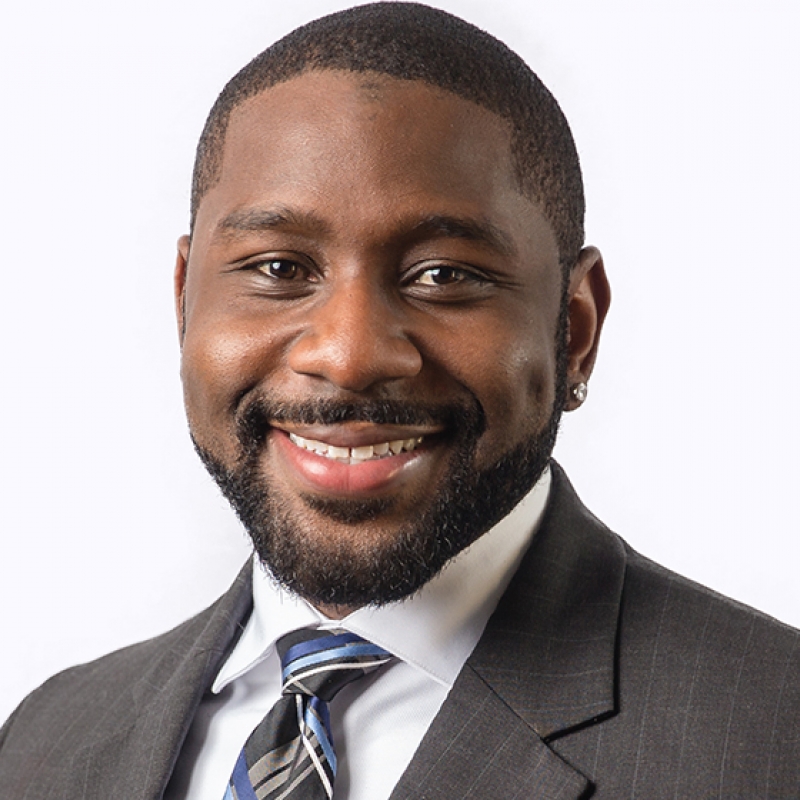
"Everyone at Penn GSE is there for your success."
Demetri Morgan
Our graduates, alumni careers.
- Assistant Professor, Loyola University of Chicago
- Assistant Professor, Seattle University
- Assistant Professor, The University of Michigan School of Education
- Assistant Provost for Administration, Bryn Mawr College
- Associate Dean, Harvard Graduate School of Education
- Senior Program Officer, The Bill & Melinda Gates Foundation
- Senior Policy Advisor, United States Department of Education
Admissions & Financial Aid
Please visit our Admissions and Financial Aid pages for specific information on the application requirements , as well as information on tuition, fees, financial aid, scholarships, and fellowships.
Contact us if you have any questions about the program.
Graduate School of Education University of Pennsylvania 3700 Walnut Street Philadelphia, PA 19104 (215) 898-6415 admissions@gse.upenn.edu finaid@gse.upenn.edu
Ross Aikins Adjunct Associate Professor, Program Manager (215) 898-8398 raikins@gse.upenn.edu
Noel Lipki Program Coordinator (215) 746-2923 nlipki@upenn.edu
Please view information from our Admissions and Financial Aid Office for specific information on the cost of this program.
All Ph.D. students are guaranteed a full scholarship for their first four years of study, as well as a stipend and student health insurance. Penn GSE is committed to making your graduate education affordable, and we offer generous scholarships, fellowships, and assistantships.
Related News & Research

Five tips for dealing with the new FAFSA
Penn gse alum’s financial viability index shines in philadelphia inquirer investigation, penn's graduate school of education launches ivy league’s first-ever ai degree program in education.

Revenue or access? Julie Wollman on why Pennsylvania universities are betting on out-of-state students

Institute for Research on Higher Education
The Institute for Research on Higher Education (IRHE) is a university-wide research institute that conducts research relevant to policymakers and educational practitioners.
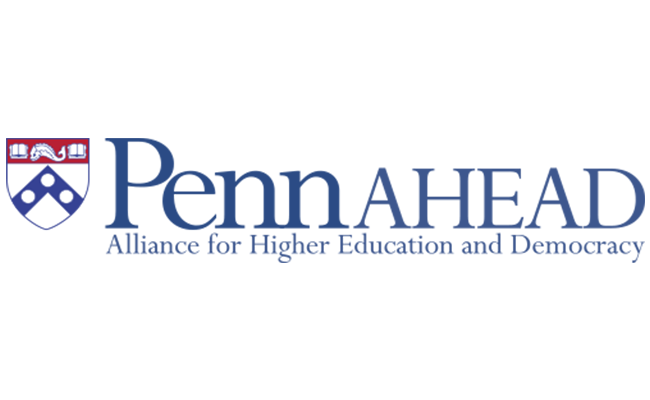
Alliance for Higher Education and Democracy (Penn AHEAD)
The Alliance for Higher Education and Democracy (Penn AHEAD) is dedicated to fostering open, equitable, and democratic societies through higher education.
You May Be Interested In
Related programs.
- Education Policy Ph.D.
- Executive Doctorate in Higher Education Management Ed.D.
- Higher Education Ed.D.
- Higher Education M.S.Ed.
Related Topics
- Future Students
- Current Students
- Faculty/Staff

Programs & Degrees
- Programs & Degrees Home
- Master's
- Undergraduate
- Professional Learning
- Student Voices

You are here
Doctoral programs.
The goal of the GSE PhD in Education is to prepare the next generation of leading education researchers. The cornerstone of the doctoral experience at the Stanford Graduate School of Education is the research apprenticeship that all students undertake, typically under the guidance of their academic advisor, but often with other Stanford faculty as well.
In this apprenticeship model, doctoral students are provided with a multi-year funding package that consists of opportunities each quarter to serve as teaching and research assistants for faculty members' courses and research projects. By this means, and in combination with the courses they take as part of their program, students are prepared over an approximately five-year period to excel as university teachers and education researchers.
The doctoral degree in Education at the GSE includes doctoral program requirements as well as a specialization, as listed below, overseen by a faculty committee from one of the GSE's three academic areas.

Doctoral programs by academic area
Curriculum studies and teacher education (cte).
- Elementary Education
- History/Social Science Education
- Learning Sciences and Technology Design
- Literacy, Language, and English Education
- Mathematics Education
- Science, Engineering and Technology Education
- Race, Inequality, and Language in Education
- Teacher Education
Developmental and Psychological Sciences (DAPS)
- Developmental and Psychological Sciences
Social Sciences, Humanities, and Interdisciplinary Policy Studies in Education (SHIPS)
- Anthropology of Education
- Economics of Education
- Education Data Science
- Educational Linguistics
- Educational Policy
- Higher Education
- History of Education
- International Comparative Education
- Organizational Studies
- Philosophy of Education
- Sociology of Education
Cross-area specializations
Learning sciences and technology design (lstd).
LSTD allows doctoral students to study learning sciences and technology design within the context of their primary program of study (DAPS, CTE, or SHIPS).
Race, Inequality, and Language in Education (RILE)
RILE trains students to become national leaders in conducting research on how race, inequality, and language intersect to make both ineffective and effective educational opportunities. RILE allows students to specialize within their program of study (DAPS, CTE, or SHIPS).
Other academic opportunities
- Concentration in Education and Jewish Studies
- PhD Minor in Education
- Stanford Doctoral Training Program in Leadership for System-wide Inclusive Education (LSIE)
- Certificate Program in Partnership Research in Education
- Public Scholarship Collaborative

“I came to Stanford to work with faculty who value learning in informal settings and who are working to understand and design for it.”
Doctoral graduates were employed within four months of graduation
of those employed worked in organizations or roles related to education
For more information about GSE admissions and to see upcoming events and appointments:

To learn more about the Office of Academic Affairs:
Stanford Graduate School of Education
482 Galvez Mall Stanford, CA 94305-3096 Tel: (650) 723-2109
- Contact Admissions
- GSE Leadership
- Site Feedback
- Web Accessibility
- Career Resources
- Faculty Open Positions
- Explore Courses
- Academic Calendar
- Office of the Registrar
- Cubberley Library
- StanfordWho
- StanfordYou
Improving lives through learning

- Stanford Home
- Maps & Directions
- Search Stanford
- Emergency Info
- Terms of Use
- Non-Discrimination
- Accessibility
© Stanford University , Stanford , California 94305 .
PhD in Higher Education
Earn a doctoral degree in higher education as preparation for an academic or administrative career.
Loyola's PhD in higher education is an interdisciplinary program that encourage students to connect theory to practice while supporting scholarship on equity and social justice in various postsecondary contexts.
Our commitment to you
Upon graduation with a PhD in higher education from Loyola University, Chicago you will possess knowledge, skills, and professional values necessary to lead as a scholar or lead administrator in higher education, applying advanced and extensive knowledge of equity and social justice.
You will understand the history, foundations, critical issues, and applications of higher education theory and practice. Additionally, you will build a strong foundation in critical social theory, curriculum and pedagogy, student affairs theory, critical issues, and socially-just practices in higher education.
You will gain scholarly frames for understanding various higher education contexts, critically evaluate research (i.e., designs, data analysis, and data interpretation) and apply critical inquiry and research skills to successfully complete your dissertation research.
Professional Values
PhD graduates of Loyola's higher education program are committed to advancing social justice through research, practice, and scholarship.
Program Faculty
Our dedicated Higher Education Faculty are experts in their fields who will support students throughout each stage of the program.
Program Length
The time toward completion of a doctoral degree varies with each student. A full-time student can complete their coursework in two to three years; the remaining years are spent conducting an original research study and writing the dissertation.
Continuous Enrollment PhD students in Higher Education are required to maintain continuous enrollment during their program of studies. This means that during each semester of each academic year (excluding Summer Sessions), each student must enroll in at least one course. A formal leave of absence may be granted upon request and the approval of the School of Education’s Assistant Dean of Student Academic Services.
Admission Requirements
Interested in applying? Check out the PhD Higher Education application requirements .
- For application related questions, contact Graduate Enrollment Management .
- For program structure and academics related questions, email gpem@luc.edu
Tuition, Financial Aid and Scholarships
The School of Education and Loyola's Financial Aid Office are committed to helping students secure the necessary financial resources to make their education at Loyola affordable. You can learn more on the Financial Assistance page.
How long does it take to finish the program?
What are the career paths for those who earn a phd in higher education.
Our alumni include university professors, directors of cultural centers, policy analysts, community-based organization managers, student affairs administrators at all levels (including executive positions), consultants, and other education-related careers.
Can I visit the campus or sit in on a class?
During COVID-19, we are not hosting class visits. Check back for updates as the situation changes.
Is there funding available for my doctoral studies?
We aim to support full-time doctoral students with graduate assistantships, which generally include a combination of tuition remission and a stipend.
Who will be my advisor/dissertation chair?
The advisee-advisor match is initially determined upon admittance to the program, however, we, as a faculty, work to ensure that this process is as organic as possible. Therefore, changes may occur as you develop your scholarly identity within the program.
Can I make an appointment to talk to someone about the program?
Absolutely! Feel free to contact contact us at gradinfo@luc.edu to get started.

Doctoral Degree Programs
Additional information.
- Download the Doctoral Viewbook
Join a world-class community of scholars and education leaders exploring new frontiers in learning and teaching.
Doctoral study at Harvard means full immersion in one of the world's most dynamic and influential intellectual communities. At the Harvard Graduate School of Education, two distinct doctoral programs leverage the extraordinary interdisciplinary strengths of the entire University. The Doctor of Education Leadership (Ed.L.D.) prepares experienced educators for system-level leadership roles in school districts, nonprofit organizations, government agencies, and beyond; and the Doctor of Philosophy in Education (Ph.D.) empowers cutting-edge interdisciplinary research informed by the cognitive sciences, economics, medicine, the humanities, and more.
Doctor of Education Leadership (Ed.L.D.)
The Doctor of Education Leadership (Ed.L.D) is a three-year, practice-based program designed to produce system-level leaders in American pre-K-12 education. The Ed.L.D. curriculum mines the vast intellectual and professional resources of HGSE, the Harvard Business School , and the Harvard Kennedy School , and includes a 10-month residency in the third year.
Doctor of Philosophy in Education (Ph.D.)
The Doctor of Philosophy in Education (Ph.D.) , offered jointly with the Harvard Kenneth C. Griffin Graduate School of Arts and Sciences , provides unrestricted access to faculty and resources at all Harvard graduate and professional schools. This five-year Ph.D. is ideal for conducting groundbreaking interdisciplinary research that directly informs and impacts education practice and policy.
Ph.D. in Higher Education
GRADUATE PROGRAMS
The PhD in Higher Education is for post-Master’s degree students who are interested in preparing for service and leadership in a broad range of roles in Colleges and Universities. Program graduates will understand the administrative, political, financial, legal, and socio-cultural aspects of higher education and be prepared to be change agents in 21st century institutions of post-secondary education, including community colleges, 4-year degree granting institutions, and comprehensive graduate and professional degree granting universities. In addition to core coursework, students will have the opportunity to specialize by taking a minimum of 6 credit hours of coursework in an area of professional interest. Additionally, focused internships working with professionals in their field of interest and an international research focused study abroad experience will provide students with mentorship and real-world experience.
February 15th is the deadline for consideration for Fall admission. Incomplete applications are not reviewed.
What makes our program right for you?
Purdue specific outcomes and program highlights:
- Distinguish yourself in the education industry with a superior credential from an institution with worldwide recognition and impact.
- Advance and network with an experienced and motivated peer group for mutual support, team exercises, and enhanced learning.
- Publish with internationally recognized faculty.
Purdue quality. Flexible schedule.
Online and hybrid students enjoy the same rigorous academic programs as on-campus students, but with a much more flexible class schedule. Assignments, discussions, and other coursework are posted each week in the virtual classroom. Students are required to participate in real-time classes from 6-9 p.m. EST two nights per week. The hybrid model of this program requires students to travel to campus at least once a semester.
The cohort model provides opportunities for student to get to know their peers. Students can build friendships and a support system during the program that helps to build a professional network. Students are able to learn from others who are in the same field and may have different and similar experiences. The Cohort Doctoral Program strives to develop leaders in the education industry.
Students will publish with internationally acclaimed faculty. During the program, students will co-author with Higher Education faculty a minimum of three articles, published in peer reviewed journals. Higher Education students gain highly sought-after skills and experiences in research, writing and publishing – the currency of Higher Education Institutions.
MAKE YOUR NEXT GIANT LEAP
For more information, view the Admissions Application Checklist
PhD Virtual Information Sessions
Virtual Class Visit Tuesday, October 1st, 6:00-7:00 pm
Virtual Information Session Wednesday, November 13th, 12:00-1:00 pm
Request Information – Ph.D. Higher Education
- Your Name * First Last
- Email Address *
- Phone Number *
Career Outlook
The higher education field is growing rapidly, according to the Bureau of Labor Statistics . Universities and institutions are struggling to find candidates who have the foundation to understand higher education structure, governance, and operation. The Ph. D. in Educational Studies, Higher Education can give you the needed foundation to be successful.
Job opportunities include (but are not limited to):
- Leadership Program Administration
- Chief Academic Officer
- Admissions Dean or Administrator
- Financial Aid Director
- Student Services Dean
- Provost or Vice President
- Student Engagement Outreach Specialist
- Athletic Director
- Education Consultant
- Development Officer
Students enroll in 7 credit hours per semester: 2- 3 credit courses and 1 credit of research writing. Students should anticipate spending an average of 15 hours weekly on reading and homework. Students are required to participate in real-time classes from 6-9 p.m. EST two nights per week. The hybrid model of this program requires students to travel to campus at least once a semester.
Students attend a required 10-day study abroad experience during the summer after the second year of coursework. Please note that study abroad costs are in addition to tuition and will range between $4,000 – $6,000 plus airfare. (This fee includes one credit hour of tuition).
Program and Required Courses (42 credit hours)
*all classes are 3-credit hours unless otherwise noted
- Organization & Administration of Higher Education
- Qualitative Research Methods
- Economics and Finance of Higher Education
- Higher Education Leadership
- Quantitative Data Analysis Methods in Education I
- Quantitative Data Analysis Methods in Education II
- Politics & Policy in Higher Education
- Higher Education Law
- History of the American College & University
- International & Intercultural Education
- Cultural Engagement in Communities and Workplaces
- Study Abroad for Educational Leaders (1 hour)
- Assessment and Evaluation in Higher Education
- Research Procedures in Education
- Higher Education Internship (2 hours)
Elective Courses (6 credit hours)
For the remaining 6 credits, you and your advisor will work to develop a plan of study that matches your individualized interests and career goals. One suggestion would be Research Procedures in Education.
Dissertation Research (15 credit hours)
The Ph.D. in Educational Studies with a concentration in Higher Education program is affordable and competitive in cost.
*Tuition and fees are charges on a per credit hour basis and are subject to annual increase. Annual increases may change the total program costs. *Textbooks and course materials are not included. *A 10-day study abroad program is required for all students and is completed during the summer of the second year of doctoral students. The fee for study abroad includes one credit hour of tuition. *Faculty and staff fee remissions are not valid with this program. *International Fee
**The cost of attending Purdue varies depending on where you choose to live, enrollment in a specific program or college, food and travel expenses, and other variables. The Office of the Bursar website shows estimated costs for the current aid year for students by semester and academic year. These amounts are used in determining a student’s estimated eligibility for financial aid. You can also use our tuition calculator to estimate tuition costs.
December 1st is the deadline for applications for those interested in being considered for any available College and University Funding for Fall. Funding opportunities for this program vary year-to-year.
Admissions requirements:
- A completed master’s degree is required prior to admission.
- Official transcripts
- Personal History Statement – This may include relevant details on community service, leadership roles, participation in diverse teams, and significant barriers that you overcame to attend graduate school.
- Academic Statement of Purpose – This is an opportunity for you to share information that will help reviewers understand your academic interests and objectives, assess your academic background, preparation, and training, and determine if you are a good match for the program to which you are applying.
- 3 Letters of recommendation
- English proficiency for international students
- Application fee
For more information, please see Purdue’s full application instructions and Application Checklist .
Program Faculty
Our faculty are nationally recognized and have the ability to work personally with students to individualize their plan of study to meet personal career interests and goals. These faculty will oversee the intensive coursework required for publications and research.
- Ackerman Center
- Serious Games
- CnI Online Fac
- Curriculum Studies
- Education for Work and Community
- Elementary Education
- English Education
- English Language Learning
- Learning Design and Technology
- Literacy and Language Education
- Mathematics Education
- Science Education
- Social Studies Education
- Applied Behavior Analysis
- Counseling and Development
- Educational Leadership and Policy Studies
- Educational Psychology and Research Methodology
- Gifted Education
- Special Education
Mohammad Javad Ahmadi
Christine kiracofe (rienstra-kiracofe), f. richard olenchak, terron phillips, lisa lambert snodgrass, testimonials.
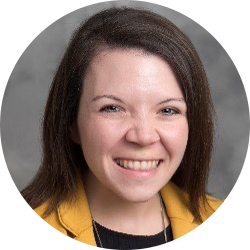
This program allows me to keep working full-time without having class, research projects, or internship experiences conflict with my work schedule. I wanted a cohort model, and was really intrigued by the three-paper dissertation format with a broader research arc. Additionally, when I interviewed colleagues, friends, and mentors, they all said they wished they had more experience with law, finance, and policy, which are three strong aspects of this program. MICHELLE L. ASHCRAFT Director of Purdue Promise Student Success Programs
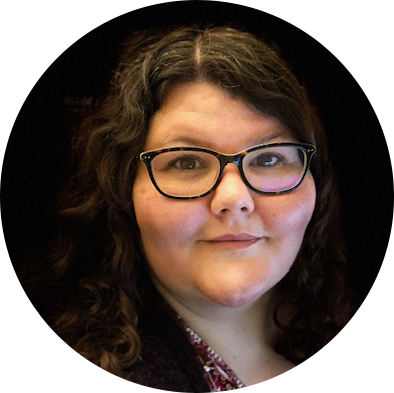
The faculty has successfully created a rigorous program that also inspires collaboration and caring. Every aspect, from the cohort model to the dissertation process, is designed to help students be successful and also to strive a little further toward their educational goals. Cohorts are selected with diversity in mind to provide each class with a broad lens of understanding. Coursework allows for personal growth and development of our research arcs that fit within the scope of the class while allowing me to work full-time. SHAUNA MCCLURE Data Management Specialist Office of Global Partnerships and Programs Purdue University
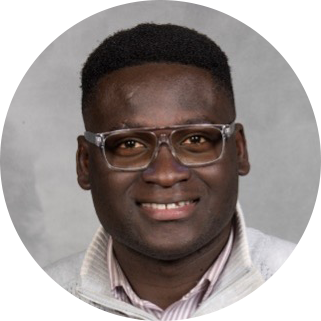
This program is designed to accommodate full-time workers. I did not have to resign from my position to pursue my doctorate. After a couple months into the program, I can attest to the rigor of the program and most importantly the real-world experiences that we gain through different case studies. There are so many opportunities to do research or even publish a research article in the very first semester into the program. KANGNI “SAM” MOMBOU PhD Student in Higher Education
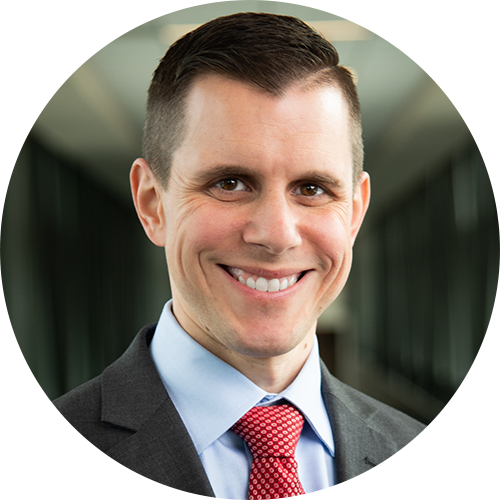
The program has been a great experience! The coursework has been the perfect blend of theory and real-world application. Faculty have offered tremendous support throughout my journey. I am a much more efficient and effective administrator and leader because of things I have learned and experienced in this program. I would not trade the experience and knowledge I have gain for anything else like it! MARK SCHNEIDER Assistant Vice President of K-14 Academic Initiatives & Support Ivy Tech Community College
Frequently Asked Questions
- How long is the program? The program is designed to take 4 years (Fall, Spring, and Summer semesters).
- Is the GRE required for admission? Are GRE waivers available? Yes, the GRE is required for all students. There are no GRE waivers for this program. However, you can submit GRE scores that are up to 5 years old.
- Is a Masters degree required for admission? Yes. All applicants must have a masters degree from an accredited College or University.
- Are there funding opportunities available? Students can apply (by December of the year prior to the start of the cohort) for competitive fellowships through the College of Education and the University. Please note that the fellowship application deadline is much earlier than the regular application deadline. Fellowship students come and work either as teaching assistants or graduate assistants at Purdue.
- Is it possible to work full time and complete the PhD? Yes. However, students must be available to take classes (either in person or live via Zoom) from 6 – 9 p.m. EST two weeknights each week (days may vary).
- How much is tuition? Tuition is $700/credit hour for in-state students and $750/credit hour for out-of-state students. Please note that the required study abroad program expenses are in addition to tuition and will range from $4,000 – $6,000 plus airfare.
- How many courses do PhD students take each semester? Standard load is two three-credit courses each semester. In addition to these two classes, depending on the semester, students may also register for 1 hour of internship, or dissertation research. Students will not take more than 7 credit hours in a semester unless special arrangements are made in advance.
- What is the study abroad component of the program? The required study abroad program will take place during the summer after students’ second year of coursework. We will travel abroad for approximately 10 days and work with professors and administrators at a partnering Higher Education Institution (currently at Trinity College in Dublin, Ireland). Please note that study abroad costs are in addition to tuition and will range between $4,000 – $6,000 plus airfare.
- What does the dissertation for this PhD look like? The dissertation requires that students author (with program faculty) at least three peer-reviewed scholarly articles of appropriate length and subject matter during their doctoral studies. The dissertation consists of an introductory chapter, reprints of these three (or more) articles, and an analysis/conclusion chapter.
- What does the internship involve? Internships are individualized and are designed to give students experience in areas of a college or university that they are interested in exploring. The internship is not a “job shadowing” experience and students are not required to be physically present in West Lafayette to complete an internship at Purdue. Instead, the internship is project based, allowing students to gain important experience with “real world” higher education issues and challenges.
- What does it mean to be a “hybrid” doctoral program? Students are required to come to West Lafayette for an intensive class once per semester. Students are encouraged to attend class in-person each week as they are able. However, for students who live some distance from Purdue, they can access the weekly courses in real time via Zoom each week. The only requirement is that students must be available to be “at” classes from 6 – 9 p.m. EST two nights each week.
- When is the application deadline? NEW DEADLINE – February 15 th (note that students interested in fellowships must apply by December of the previous year)
- Download a PDF of this FAQ factsheet
Admissions: edgrad@purdue.edu Course Content Information: Contact Dr. Lisa Lambert Snodgrass and Dr. Terron Phillips Course Registration, payment, drops/withdraws, and removing holds: Purdue Online purdueonline@purdue.edu Career accounts: ITaP (765) 494-4000

Connect with Pitt Education

PhD in Higher Education

Develop an advanced understanding of the dynamic forces shaping higher education.
The PhD in Higher Education is committed to advancing scholarship, research, and practice in the field of higher education. The program is focused on critical scholarship and centers equity, inclusion, and justice.
Students have research interests ranging from student access to student outcomes, student development and affairs, faculty, organizations, and administration, community colleges and community college leadership, and policy.
Request Info
View Tuition
Program Facts
Degree Type
Doctor of Philosophy (PhD)
Time Commitment
Full-time or Part-Time
3 - 5 years
Enrollment Term
Application Deadline
Admission Requirements
No GRE Exam is required
Program Overview
The PhD in Higher Education is committed to advancing scholarship, research, and practice in the field of higher education. The program is focused on critical scholarship and centers equity, inclusion, and justice. Our students research interests include student access, student outcomes, student development and affairs, faculty, organizations, and administration, community colleges and community college leadership, and policy.
The program has a core set of courses designed for students to gain an understanding of historical, political, philosophical, and social elements that shape and continue to reshape higher education. The curriculum is designed to ground students in the study of higher education as a discipline and critical scholarship within the field. Students develop an area of research specialization. The curriculum in higher education is complemented by courses within other programs in the Educational Foundations, Organizations, and Policy Department and across the School of Education. In addition, through a strong focus within the program on rigorous methodological training, students gain competency in both quantitative and qualitative research methods and take advanced courses in the methodological approaches they plan to utilize in their research.
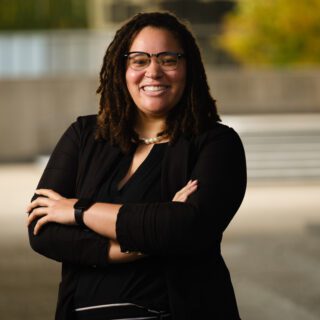
"The School of Education has been an asset to my doctoral journey and truly embodies the famous words of Nelson Mandela: 'Education is the most powerful weapon we can use to change the world.'" Jenay Willis - Pitt alumni
Take the Next Step
Prerequisites
There are no specific prerequisites for this degree, but interested students should verify that they fulfill the admissions requirements.
The PhD in Higher Education program is 90 credits.
Loading…
Required Courses (21 credits)
- EFOP 2307 – POLITICS AND HISTORY OF HIGHER EDUCATION
- EFOP 2131 – HIGHER EDUCATION ADMINISTRATION
- EFOP 2055 – STUDENT DEVELOPMENT THEORY
- EFOP 3141 – POLICY STUDIES IN HIGHER EDUCATION
- EFOP 3150 – FOUNDATIONS FOR THE STUDY OF HIGHER EDUCATION
- EFOP 3151 – THEORETICAL FRAMEWORKS FOR THE STUDY OF HIGHER EDUCATION
- EFOP 3153 – RESEARCH PERSPECTIVES ON DIVERSITY, EQUITY, AND INCLUSION IN HIGHER EDUCATION
Electives (24 Credits)
Students enroll for 24 credits of electives, including 9 credits of higher education courses taught in the program. Program courses include but are not limited to the following:
- EFOP 3015 – ETHICAL ISSUES IN HIGHER EDUCATION
- EFOP 3131 – STUDENT, CAMPUS, AND SOCIETY
- EFOP 3136 – COMPARATIVE HIGHER EDUCATION
- EFOP 3134 – CONTEMPORARY LATINX ISSUES IN US HIGHER EDUCATION
Research Methodology (18 credits)
Students enroll for 18 credits of research methodology, including:
Three required courses (9 credits):
- EDUC 3100 – INTRODUCTION TO QUAN METHODS: DESCRIPTIVE AND INFERENTIAL STATISTICS (required)
- EDUC 3103 – QUANTITATIVE METHODS 2 (required)
- EDUC 3104 – INTRODUCTION TO QUALITATIVE METHODS (required)
Research Methodology electives (9 credits) include the following:
- EDUC 3107 – WAYS OF KNOWING
- EDUC 3505 – RESEARCH-PRACTICE PARTNERSHIPS: APPROACHES TO COLLABORATIVE DESIGN, INQUIRY & CHANGE
- EDUC 3506 – MIXED METHODS RESEARCH
- EFOP 3012 – QUALITATIVE DATA MANAGEMENT, ANALYSIS, AND PRESENTATION
- EFOP 3201 – INTRODUCTION TO EDUCATIONAL EVALUATION
- EFOP 3209 – HIGHER EDUCATION INSTITUTIONAL ASSESSMENT & ACCREDITATION
- EFOP 3408 – HIERARCHICAL LINEAR MODELING
- EFOP 3417 – STRUCTURAL EQUATION MODELING
- EFOP 3471 – CONSTRUCTING QUESTIONNAIRES AND CONDUCTING SURVEYS
- EFOP 3472 – CAUSAL INFERENCE IN EDUCATIONAL RESEARCH
- EFOP 3501- Critical Policy Analysis
- EDUC 3000 – ADVANCED APPLIED STATISTICAL ANALYSIS
- EDUC 3106 – ADVANCED APPLIED QUALITATIVE ANALYSIS
- TLL 3003 – RESEARCH INTERVIEWING
Supervised Research (6 credits)
Students enroll in 6 credits:
- EFOP 3097 – SUPERVISED RESEARCH
Independent Research (18 credits)
Students enroll in 18 credits:
- EFOP 3099 – GUIDANCE IN THE DOCTORAL DEGREE
Professional Seminars (3 Credits)
- EDUC 3102 – FIRST YEAR SEMINAR 1
- EDUC 3105 – FIRST YEAR SEMINAR 2
Career Pathways
- Faculty at institutions of higher education
- Researchers at educational think tanks and major policy institutes
- Leaders of administrative units with teaching and research responsibilities.
Program Faculty
Program Coordinator
Linda DeAngelo
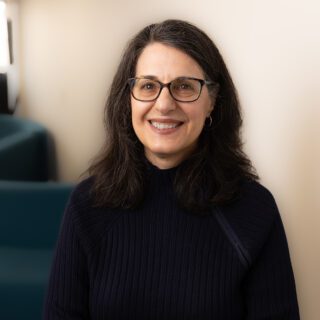
Rosa Maria Acevedo
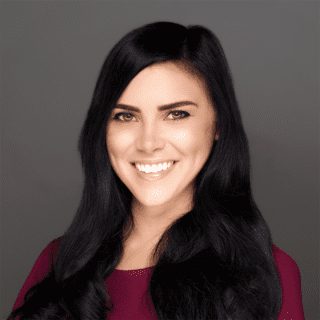
Sergio A. Gonzalez

Heather McCambly
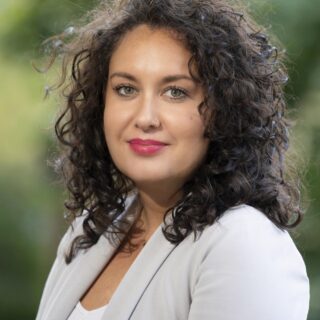
Darris Means

Brett Ranon Nachman
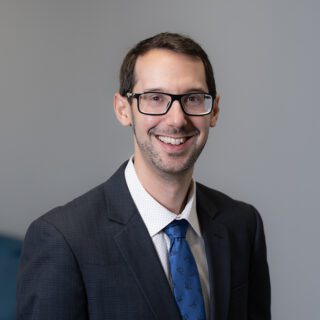
Nicholas C. Neupauer

Maximilian T. Schuster

Eboni M. Zamani-Gallaher

Program News
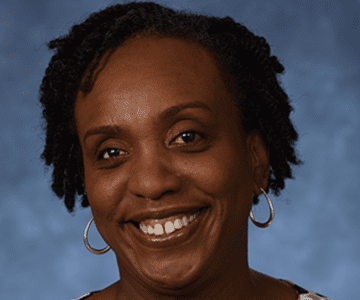
$3 Million Grant Seeks to Build Stronger Career Pathways for Engineering Faculty of Color
$3 Million Grant Seeks to Build Stronger Career Pathways for Engineering Faculty of Color - Read more

Faculty Member Darris Means Named Emerging Scholar in Higher Education
Faculty Member Darris Means Named Emerging Scholar in Higher Education - Read more

New $1.3 Million Grant to Develop Industry-Focused Job Pathways for Community Colleges
New $1.3 Million Grant to Develop Industry-Focused Job Pathways for Community Colleges - Read more
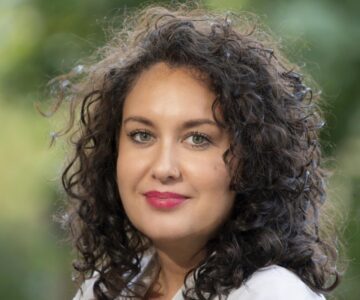
Faculty Member Heather McCambly Receives NAEd/Spencer Postdoctoral Fellowship
Faculty Member Heather McCambly Receives NAEd/Spencer Postdoctoral Fellowship - Read more
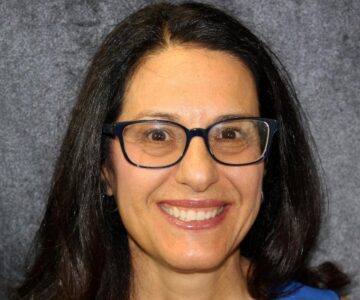
New Book Addresses Student Socialization in Higher Education
New Book Addresses Student Socialization in Higher Education - Read more
This website uses cookies to improve visitor experiences. You can configure cookie settings in your web browser.

IMAGES
VIDEO